SUMMARY
This is AI generated summarization, which may have errors. For context, always refer to the full article.
![[OPINION] ‘Tira-tirang malasakit’: A contractual teacher’s reflection](https://www.rappler.com/tachyon/2020/12/ispeak-contractual-teachers-1280.jpg)
To end 2020, Rappler’s Voices section has requested writers who contributed at the start of this (very eventful) year to write a follow-up to their original opinion piece.
The following is by Brian James Delos Reyes, who wrote “Thoughts from a contractual teacher on the upcoming school year” in July 2020, several months before the chaotic start of the new school year via distance learning.
The year 2020 is about to end, but our struggles as contractual employees continue, as it has for years.
Months ago, when face-to-face learning was suspended in accordance with health protocols prescribed by the government, there was a lot of uncertainty for a contractual employee like myself. I did not know if I would be rehired because of the anticipated decline in enrolment.
Thankfully, I was rehired. I am thankful to be employed, because to be unemployed during a health crisis can be a profoundly jeopardizing situation. Merong pandemic tapos wala kang trabaho? Paano kapag nagkasakit ka? Ang hirap.
Here is the truth though: the uncertainty will be the same for the next semester and the semester after. I will wait have to wait for updates (usually late) on whether I shall be rehired or not. I will be under the mercy of a system that is seemingly used to treating us this way. We contractual employees have survived under very precarious conditions. This should not be treated as normal; it is not. Many would even call it normal, but I call it injustice.
In hindsight, I ask myself “Hanggang kelan ba ganito? Taon-taon na lang naghihintay sa tira-tirang malasakit. As I have said before, our problems as contractual employees are problems from the pre-COVID era; the pandemic just made them glaringly obvious. I hope they are now glaring enough to be seen, and more importantly, resolved.
There is injustice towards teachers, but the ultimate injustice is not towards us alone; it is also towards our students. Yes, the students who pay school fees are the ultimate victims here, the students whose parents and guardians struggle to finance their schooling. This is particularly true most especially in private institutions, which still charge school fees in full even if students do not get their money’s worth, and what they rightfully deserve. I do not have a full grasp of the intricacies behind how private institutions work, but I just wish they were not governed by the “business as usual” principle of corporate entities veiling themselves as academic institutions.
Look at it this way: Sapat ang binayad, kulang ang serbisyo, at kulang sa pagkatuto. Luging-lugi ang mga bata. My heart goes out to all the students who looked forward to getting a life-changing experience in school, but were just given tons of requirements here and there and faced administrations deaf to their realities. There is no question about the output they produce; the essential question is: Was there “learning?”
Human education
The utilization of blended learning to prevent the spread of the virus is understandable. However, there is a price to pay. When physical interaction is reduced, so does its social aspect, which includes building lasting links among classmates – something unquantifiable.
As a teacher, I believe nothing can genuinely substitute the depth of learning and human experience provided for by the face-to-face classroom setup. Schools are not only here to produce professionals, but professionals who are humans — not automatons.
Some universities prepared learning modules, and their creation, reproduction, and use sound strategic. But where does this leave us? In foresight, if universities continue to rely more and more on ready-made modules, then I am afraid less and less will be needed of teachers, and they will become less and less important. If the use of modules becomes the future of schools, then a contractual teacher like me might not have a space in that future. Again, very precarious.
After a semester of working from home as a university lecturer, I realized that nothing comes close to the experience of teaching in an actual classroom, where students’ subtle smiles, nods, raised eyebrows, and frowns are felt, not merely seen. The current teaching setup, tragically, is slowly converting the teaching profession into mechanical job. Is this a part of what we signed up for when we chose this career? Madalas na ngang hindi makatarungan, tapos ngayon hindi na rin nakaka-tao.
A crisis of faith
There are 3 core reasons why I have kept faith in the teaching profession. One is the promise of education in creating a better world. Second is how it has constantly reminded me of my humanity. Third, because there is dignity in teaching – even if it is not usually felt. Recently, these reasons were tested. How much promise can we expect from education if this is how we are moving forward in teaching our students? Does teaching still make me feel more human when it is starting to take away my creativity? And have we even been treated with dignity beyond mere words?
It is the end of the year, the end of a semester. There will be an outpouring of thank you messages for teachers, but I hope this gratitude is translated into fixing the precarious conditions we’ve endured for years. We hope this gratitude goes beyond visual spectacles, because while cards and balloons are beautiful, tenure is beautiful, too. Dignified pay is beautiful, too. May we stand with and for the teachers who are victims of systems that exploit them.
I have been teaching for the last 8 years and by far they have been the most fulfilling 8 years of my life. Nothing compares. But even after all that, I still ask myself sometimes, as a young professional and as a relatively “woke” young adult, “Bakit pahirap ng pahirap panindigan yung ‘lagi’t lagi para sa bayan?'” – Rappler.com
Brian Walter James Yague Delos Reyes from Pamplona, Cagayan Valley is a researcher, faculty member, and aspiring academic at Saint Louis University Baguio City, He has a degree in Social Sciences, major in Social Anthropology from the University of the Philippines Baguio. Follow Brian on Twitter (@sir_igo).
Add a comment
How does this make you feel?
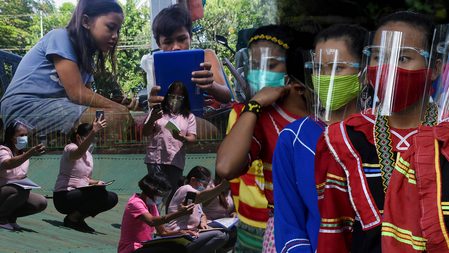
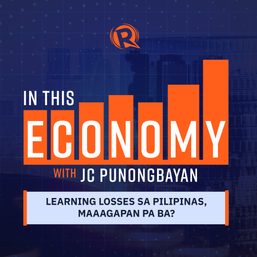
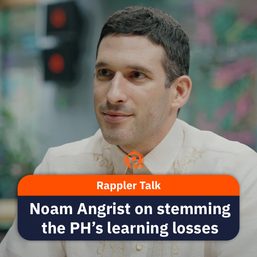
![[EDITORIAL] Ano sana ang takeaway ni Sara Duterte sa firesale ng mga laptops?](https://www.rappler.com/tachyon/2023/05/animated-DEPED-laptop-fiasco-carousel.jpg?resize=257%2C257&crop_strategy=attention)
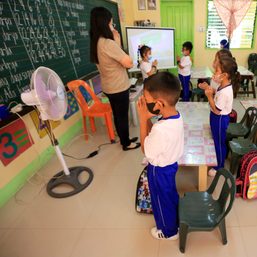
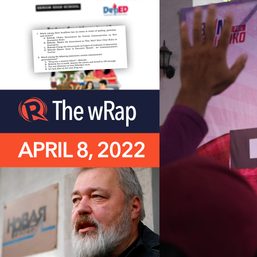
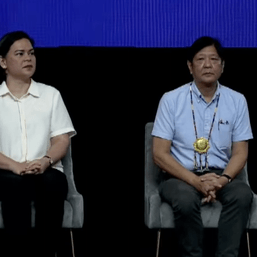
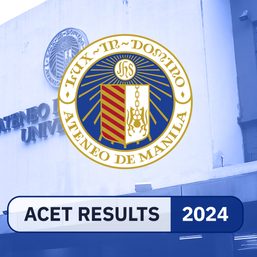
![[Time Trowel] Mentorship matters](https://www.rappler.com/tachyon/2024/04/mentorship-matters.jpg?resize=257%2C257&crop_strategy=attention)
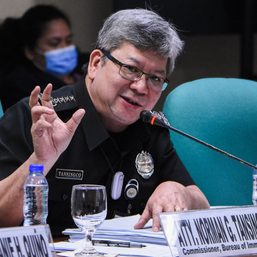




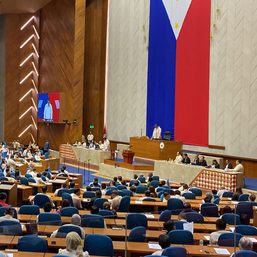
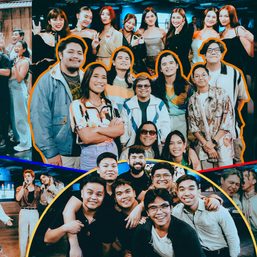
There are no comments yet. Add your comment to start the conversation.